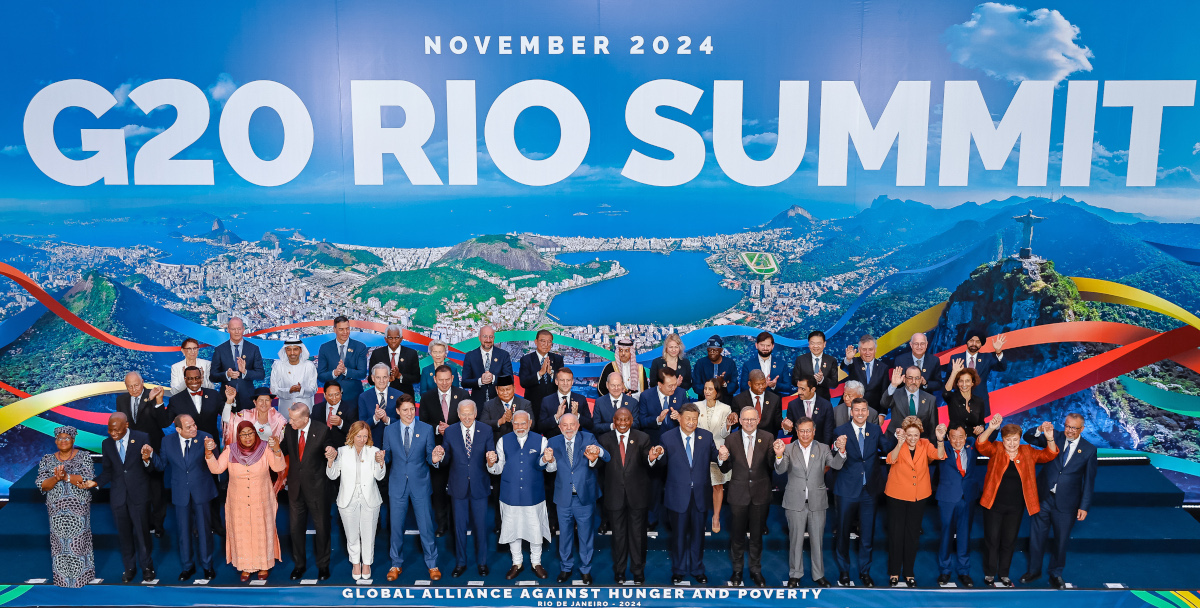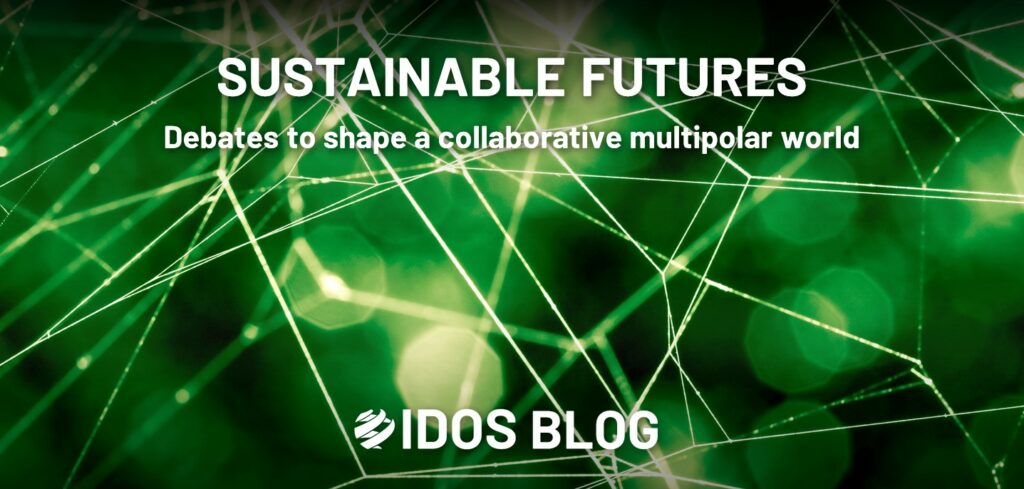The fall of the Assad dictatorship and the collapse of the state have left Syria at a critical Juncture. The disintegration of the army and security forces marks the end of an era and presents an opportunity to dismantle the old exclusionary system. This moment of chance for change comes with risks, as the country faces the possibility of another authoritarian regime emerging. The challenge is to create a future that balances inclusivity and stability, while avoiding the dangers of path dependence — where Syria reverts to old patterns of governance. (mehr …)
-
The G20 and the Re-Calibration of Global Governance – Insights from the T20 Summit 2024 in Brazil
 © Palácio do Planalto on flickr, Photo: Ricardo Stuckert/PR
© Palácio do Planalto on flickr, Photo: Ricardo Stuckert/PRIn November 2024, Brazil concluded its G20 presidency with the handover to South Africa. Just one week before the G20 Leaders‘ Summit in Rio de Janeiro on 11-12 November 2024, think tanks and research organisations from around the world gathered for the Think20 (T20) Summit. They took stock of the uptake and implementation of the policy advice they provided to the G20 throughout the year. This blog post provides an overview of key discussions at the T20 Summit with a focus on the priorities under Brazil’s G20 presidency. It analyses to which extent Brazil has continued initiatives of India’s G20 presidency in 2023, and shares an outlook on the potential approach of the South African presidency in 2025. (mehr …)
-
Leveraging the FfD4 Preparatory Process to Remove Barriers to Channelling Special Drawing Rights to Multilateral Development Banks
In the face of multiple crises, the availability of development finance for developing countries is declining, even as their financing needs to achieve the Sustainable Development Goals are increasing. The Pact for the Future has recently called for eligible countries to channel half of their 2021 allocations of Special Drawing Rights (SDRs) at the International Monetary Fund (IMF) to developing economies, including through multilateral development banks (MDBs). (mehr …)
-
It Ain’t Over Till It’s Over: COP29’s Decision on the New Climate Finance Goal – the Fine Line Between Compromise and Compromising
When the gavel went down in the early hours of Sunday morning in Baku and a decision was reached on the new collective quantified goals (NCQG) on climate finance it caused as much relief as disbelief in the room. The European Union (EU), represented by EU climate commissioner Woepke Hoekstra, praised the decision as “a start of a new era for climate finance”, while the group of least-developed countries stated to be “outraged and deeply hurt by the outcome of COP29“ and referred to “the bulldozed” NCQG as “a glaring symbol of this failure“. Some countries, notably India and Nigeria, openly objected the adopted decision on the NCQG, calling the „document little more than an optical illusion” – prompting loud applause in the plenary. (mehr …)
-
Artificial intelligence: From massive energy consumer to problem-solving?
 Image by Dario Ruglioni onPixabay
Image by Dario Ruglioni onPixabayArtificial Intelligence (AI) has the potential to drive innovation across numerous sectors. Yet, growing energy appetite related to its use raises critical questions about how much it is helping with or rather fanning climate change. A sustainability perspective requires AI to come – over even help – with a transition to renewable energy sources. Understanding this challenge is essential for ensuring that technological advancements do not come at the expense of our planet. (mehr …)



